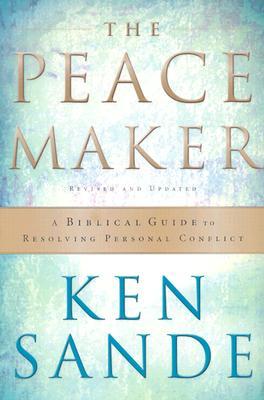Great Books 2009
Great Books 2009
Wild Goose Chase: Reclaim the Adventure of Pursuing God
Mark Batterson
Mark Batterson’s Wild Goose Chase detonates anemic Christianity masquerading as the ‘real thing’ and winsomely propels us to what can be and should be if we allow God’s Spirit to be all He can be in our lives. Let it stretch you to greater things!” —Louie Giglio, Passion Conferences
Celtic Christians had a name for the Holy Spirit–An Geadh-Glas, or ‘the Wild Goose.’ The name hints at mystery. Much like a wild goose, the Spirit of God cannot be tracked or tamed. An element of danger, an air of unpredictability surround Him. And while the name may sound a little sacrilegious, I cannot think of a better description of what it’s like to follow the Spirit through life. I think the Celtic Christians were on to something.
Most of us will have no idea where we are going most of the time. And I know that is unsettling. But circumstantial uncertainty also goes by another name: Adventure.

Deliberate Simplicity: How the Church Does More by Doing Less
Dave Browning
Less is more. And more is better. This is the new equation for church development, a new equation with eternal results.Rejecting the “bigger is better” model of the complex, corporate megachurch, church innovator Dave Browning embraced deliberate simplicity. The result was Christ the King Community Church, International (CTK), an expanding multisite community church that Outreach magazine named among America’s Fastest Growing Churches and America’s Most Innovative Churches. Members of the CTK network in a number of cities, countries, and continents are empowered for maximum impact by Browning’s “less is more” approach. In Deliberate Simplicity, Browning discusses the six elements of this streamlined model:• Minimality: Keep it simple• Intentionality: Keep it missional• Reality: Keep it real• Multility: Keep it cellular• Velocity: Keep it moving• Scalability: Keep it expandingAs part of the Leadership Network Innovation Series, Deliberate Simplicity is a guide for church leaders seeking new strategies for more effective ministry.
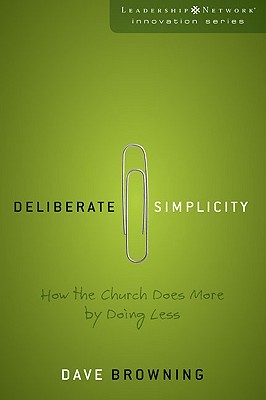
Reverse Mentoring: How Young Leaders Can Transform the Church, and Why We Should Let Them
Earl Creps
Earl Creps is known for his work in connecting the younger generation of postmoderns with their Boomer predecessors. The author of Off-Road Disciplines, Creps, in this new book, takes up the topic of how older church leaders can learn from younger leaders who are more conversant with culture, technology, and social context. In addition to making the benefits of what he calls “reverse mentoring” apparent, he also makes it accessible by offering practical steps to implement this discipline at both personal and organizational levels, particularly in communication, evangelism, and leadership. Creps’ new book is a topic of interest both inside and outside the church as older leaders realize that they’re not “getting it” when it comes to technologies (iPod, IM, blogging) or cultural issues such as the fact that younger people see the world in an entirely different way. Creps has been personally involved in reverse mentoring for several years and has spoken and written on the subject extensively. He has pastored three churches (one Boomer, one Builder, on X’er) and is currently a church planter in Berkeley, California. He has also served as a consultant and and a seminary professor and administrator, holding a PhD in Communication Studies and a D.Min. from the Assemblies of God Theological Seminary.
Unfortunately for Christ’s church, those of us who’ve been around for a while in positions of leadership find it difficult to listen to those who haven’t, but represent the next generation of the church. What could they ever teach us? No question—this prevalent attitude is much to our disadvantage as we lose touch with the future of Christ’s church. So how can we learn to be quiet for once and listen? And why should we founts of wisdom even consider it? Earl Creps provides us with a compelling answer in reverse mentoring. This is a must read for all generations who love Christ’s church —Aubrey Malphurs, The Malphurs Group and Senior Professor, Dallas Theological Seminary
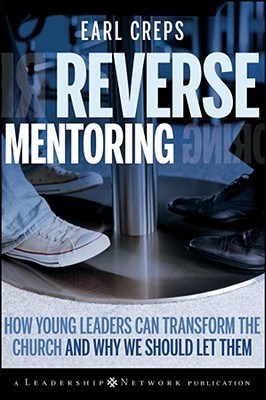
The Monkey and the Fish
Dave Gibbons
Our world is marked by unprecedented degrees of multiculturalism, ethnic diversity, social shifts, international collaboration, and technology-driven changes. The changes are profound, especially when you consider the unchecked decline in the influence, size, and social standing of the church. There is an undercurrent of anxiety in the evangelical world, and a hunger for something new. And we’re sensing the urgency of it.We need fresh, creative counterintuitive ways of doing ministry and church and leading it in the 21st century. We need to adapt. Fast. Both in our practices and our thinking. The aim of this book is simple: When we understand the powerful forces at work in the world today, we’ll learn how something called The Third Culture can yield perhaps the most critical missing ingredient in the church today—adaptability—and help the church remain on the best side of history. A Third Culture Church and a Third Culture Leader looks at our new global village and the church’s role in that village in a revolutionary way. It’s a way to reconnect with the historical roots of what Jesus envisioned the church could be—a people known for a brand of love, unity, goodness, and extravagant spirit that defies all conventions. This book is part of the successful Leadership Innovation Series.
As an entrepreneur at heart and a person passionate about what is next, I resonate with Dave Gibbons. His innovative spirit has connected with a vision for what’s next and resulted in The Monkey and the Fish, a book that looks at the world and the church in a revolutionary way. —Bob Buford, Founder, Leadership Network, and author, Halftime
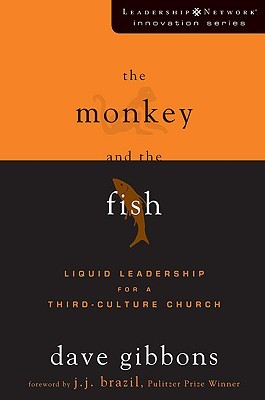
Good News for Those Trying Harder
Alan Kraft
Countless believers are pursuing spiritual growth, only to repeatedly find themselves spinning their wheels and making no progress. Many are driven to just try harder. Others feel a growing sense of failure and distance from God. But for all involved, it’s a frustrating cycle. What can we do when trying harder isn’t working?
Author and pastor Alan Kraft invites us to be still.still enough to hear the twin melodies that comprise the good news of the gospel-brokenness and faith. These core strains have the power to lift our exhausted heads so we may experience life to the full as Jesus promised.
Discover the power of a broken spirit, embrace the wonder of living by faith, and experience the joy found when you just stop trying.
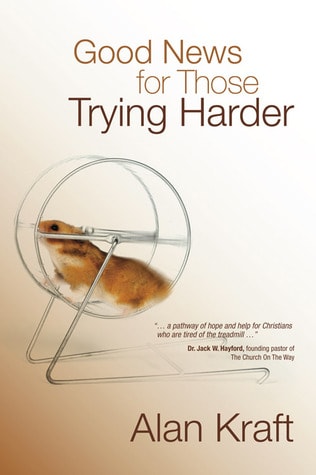
A Light That Never Dies: A Story of Hope in the Shadows of Grief
William Hendricks
Everyone should read this book. Those currently grieving will find comfort and hope. Those that have been there will find words that describe all they have gone through. Many will find helpful insights into their experience. Those who have not yet grieved over a loved one will be better prepared for that day. Bill Hendricks puts into words an experience that is difficult to describe. I felt like I was there with him. He does not pull any punches about the pain, doubts or hard questions. He has been there, but through it all there is hope. The Light never dies, and we can all take comfort in that thought. —Eric Billman, Madison, Wisconsin

Your Work Matters to God
Doug Sherman and William Hendricks
Trying to determine what God wants you to do with your life is extremely tough (an understatement!) Bill Hendricks and co-author Doug Sherman have done an excellent job telling the reader exactly why his or her work is important, and why it is important to THE Creator of all work. If you are “searching for significance,” Your Work Matters to God is a definite read! —Amazon
The Reason for God: Belief in an Age of Skepticism
Timothy Keller
In a flood of bestsellers by skeptics and atheists…Timothy Keller stands out as an effective counterpoint and a defender of the faith. The Reason for God makes a tight, accessible case for reasoned religious belief. —Washington Post
The End of Faith. The God Delusion. God Is Not Great. Letter to a Christian Nation. Bestseller lists are filled with doubters. But what happens when you actually doubt your doubts?
Although a vocal minority continues to attack the Christian faith, for most Americans, faith is a large part of their lives: 86 percent of Americans refer to themselves as religious, and 75 percent of all Americans consider themselves Christians. So how should they respond to these passionate, learned, and persuasive books that promote science and secularism over religion and faith? For years, Tim Keller has compiled a list of the most frequently voiced “doubts” skeptics bring to his Manhattan church. And in The Reason for God, he single-handedly dismantles each of them. Written with atheists, agnostics, and skeptics in mind, Keller also provides an intelligent platform on which true believers can stand their ground when bombarded by the backlash. The Reason for Godchallenges such ideology at its core and points to the true path and purpose of Christianity.
Why is there suffering in the world? How could a loving God send people to Hell? Why isn’t Christianity more inclusive? Shouldn’t the Christian God be a god of love? How can one religion be “right” and the rest “wrong”? Why have so many wars been fought in the name of God? These are just a few of the questions even ardent believers wrestle with today. In this book, Tim Keller uses literature, philosophy, real-life conversations and reasoning, and even pop culture to explain how faith in a Christian God is a soundly rational belief, held by thoughtful people of intellectual integrity with a deep compassion for those who truly want to know the truth.
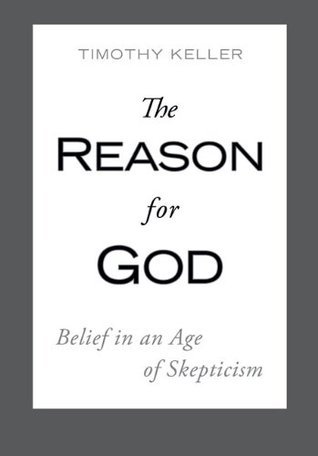
Missional Renaissance: Changing the Scorecard for the Church
Reggie McNeal
Reggie McNeal’s bestseller The Present Future is the definitive work on the “missional movement,” i.e., the widespread movement among Protestant churches to be less inwardly focused and more oriented toward the culture and community around them. In that book he asked the tough questions that churches needed to entertain to begin to think about who they are and what they are doing; in Missional Renaissance, he shows them the three significant shifts in their thinking and behavior that they need to make that will allow leaders to chart a course toward being missional: (1) from an internal to an external focus, ending the church as exclusive social club model; (2) from running programs and ministries to developing people as its core activity; and (3) from professional leadership to leadership that is shared by everyone in the community. With in-depth discussions of the “what” and the “how” of transitioning to being a missional church, readers will be equipped to move into what McNeal sees as the most viable future for Christianity. For all those thousands of churches who are asking about what to do next after reading The Present Future, Missional Renaissance will provide the answer.
This is Reggie McNeal’s gift to the church of the twenty-first century and his finest and most thorough work to date. This book clearly defines the shifts necessary to gauge what matters most for the missional people of God. —Eric Swanson, Co-author of The Externally Focused Church and Living a Life on Loan
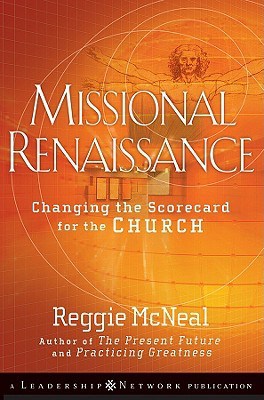
The Leadership Secrets of Billy Graham
Harold Myra and Marshall Shelley
A behind-the-scenes analysis of 21 essential leadership principles from the life of Billy Graham Billy Graham looms large as one of the twentieth century’s most influential and innovative leaders. Most people are unaware of his remarkable effectiveness as not only preacher and pastor, but as a CEO and a global leader as well. The Leadership Secrets of Billy Graham is full of transferable applications for leaders in the church, parachurch, academia, government, and business. Lively interviews with his closest associates illustrate 21 principles that have driven six decades of visionary impact. First-hand accounts reveal stories of courageous leadership and growth through painful lessons. Graham’s relentless application of core beliefs and leadership principles have resulted in, among many honors, being listed in Gallup’s ten most admired men thirty times, more than anyone else. Time magazine named him one of the top ten leaders of the twentieth century. This book asks: How did this happen? What are the essentials he embraced to achieve such extraordinary results? What can we learn from him and apply to our own leadership roles? This book is dedicated to those readers . rise to leadership’s high calling and are willing to carry its weight . Who are determined to deepen and expand their capacities and effectiveness
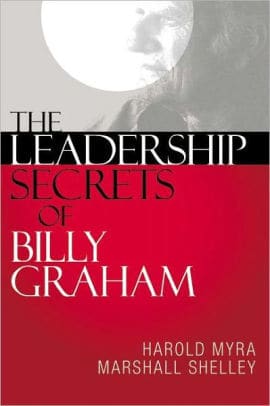
Sticky Church
Larry Osborne
In Sticky Church, author and pastor Larry Osborne makes the case that closing the back door of your church is even more important than opening the front door wider. He offers a time-tested strategy for doing so: sermon-based small groups that dig deeper into the weekend message and tightly velcro members to the ministry. It’s a strategy that enabled Osborne’s congregation to grow from a handful of people to one of the larger churches in the nation—without any marketing or special programming. Sticky Church tells the inspiring story of North Coast Church’s phenomenal growth and offers practical tips for launching your own sermon-based small group ministry. Topics include: Why stickiness is so importantWhy most of our discipleship models don’t work very wellWhy small groups always make a church more honest and transparentWhat makes groups grow deeper and sticker over timeSticky Church is an ideal book for church leaders who want to start or retool their small group ministry—and velcro their congregation to the Bible and each other.
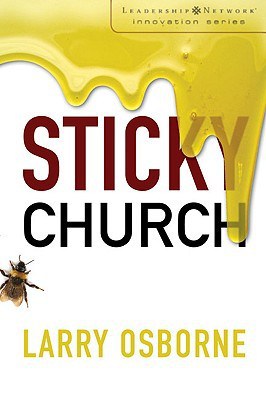
The Peacemaker—A Biblical Guide to Resolving Personal Conflict
Ken Sande
Jesus said, “Blessed are the peacemakers.” But it often seems like conflict and disagreement are unavoidable. Serious, divisive conflict is everywhere-within families, in the church, and out in the world. And it can seem impossible to overcome its negative force in our lives.
In The Peacemaker, Ken Sande presents a comprehensive and practical theology for conflict resolution designed to bring about not only a cease-fire but also unity and harmony. Sande takes readers beyond resolving conflicts to true, life-changing reconciliation with family members, coworkers, and fellow believers.
Biblically based, The Peacemaker is full of godly wisdom and useful suggestions that are easily applied to any relationship needing reconciliation. Sande’s years of experience as an attorney and as president of Peacemaker Ministries will strengthen readers’ confidence as they stand in the gap as peacemakers.
